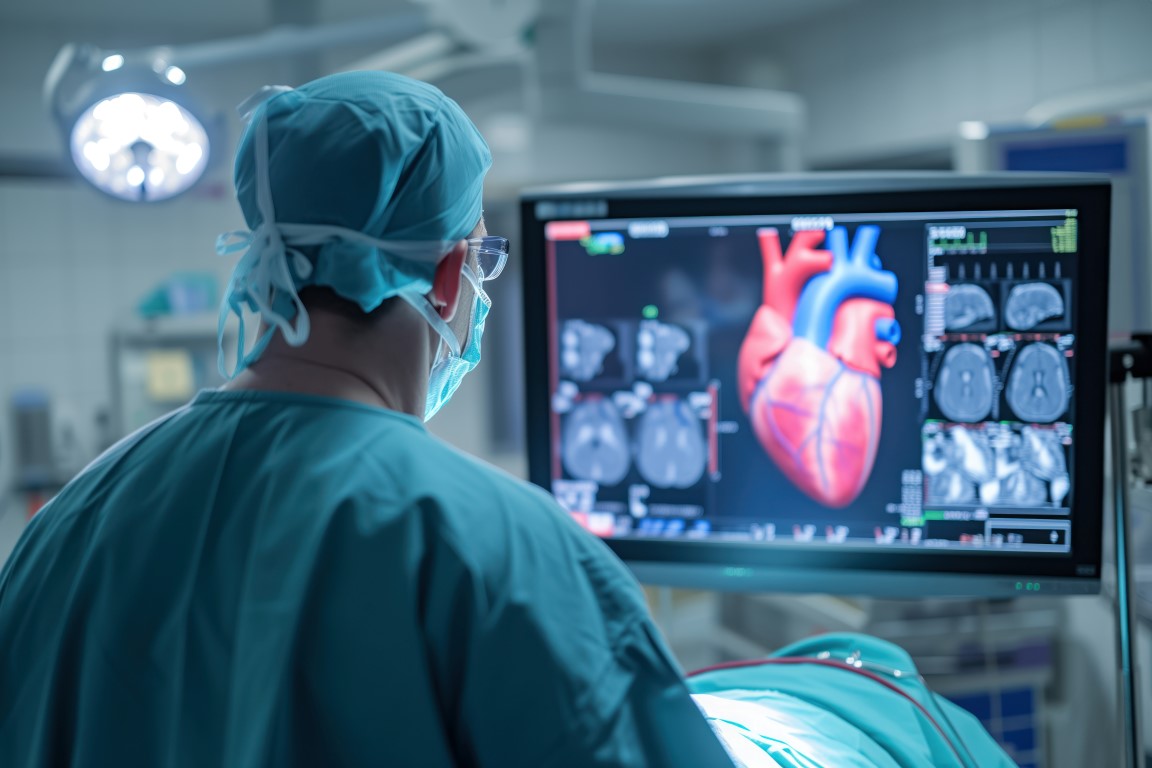
Early Signs of Heart Disease and When to See a Doctor
Heart disease remains one of the leading causes of death worldwide, affecting millions of people each year. However, recognizing the early warning signs can help in early diagnosis and treatment, significantly improving health outcomes. In this blog, we will explore the common symptoms of heart disease and when you should seek medical attention.

 Heart Attack. Senior man suffering from chest pain at home, elderly gentleman having cardiac illness, feeling unwell, standing at table in kitchen interior and rubbing thorax area, copy space[/caption]
Heart Attack. Senior man suffering from chest pain at home, elderly gentleman having cardiac illness, feeling unwell, standing at table in kitchen interior and rubbing thorax area, copy space[/caption]
 After heart attack, cardiologist examines heart of patient with an MRT scan in intensive care unit[/caption]
After heart attack, cardiologist examines heart of patient with an MRT scan in intensive care unit[/caption]

Understanding Heart Disease
Heart disease refers to various conditions affecting the heart, including coronary artery disease (CAD), arrhythmias, heart valve disease, and heart failure. While some heart conditions develop gradually, others may present sudden and severe symptoms.Early Warning Signs of Heart Disease
Recognizing the symptoms early can prevent complications and improve quality of life. Here are some of the most common early warning signs:1. Chest Pain or Discomfort (Angina)
One of the most common symptoms of heart disease is chest pain, also known as angina. This discomfort may feel like:- Pressure or tightness in the chest
- A burning or aching sensation
- Pain that radiates to the arms, shoulders, neck, jaw, or back
2. Shortness of Breath
Feeling breathless during routine activities or while resting can be a sign of an underlying heart problem. If you find yourself struggling to breathe, especially when lying down or exerting yourself, it may indicate heart failure or other cardiac conditions.3. Fatigue and Weakness
Persistent fatigue and unexplained weakness can be early indicators of heart disease. If you feel overly tired despite getting enough rest, your heart may be struggling to pump blood efficiently.4. Irregular Heartbeat (Arrhythmia)
Experiencing irregular heartbeats, palpitations, or fluttering in the chest can be a warning sign of arrhythmia. While occasional irregular heartbeats can be harmless, frequent or prolonged episodes should be evaluated by a doctor.5. Swelling in the Legs, Ankles, or Feet (Edema)
Fluid retention, especially in the lower extremities, may suggest heart failure. When the heart does not pump effectively, fluid can accumulate, leading to swelling in the legs, ankles, and feet.6. Dizziness and Lightheadedness
Feeling dizzy or lightheaded, especially when standing up suddenly, could indicate low blood pressure due to an underlying heart condition. It is essential to monitor these episodes, especially if they occur frequently.7. Persistent Cough or Wheezing
A chronic cough, especially one that produces white or pink mucus, can be a sign of heart failure. This occurs when fluid builds up in the lungs due to the heart’s inability to pump blood efficiently. [caption id="attachment_4536" align="alignnone" width="1152"] Heart Attack. Senior man suffering from chest pain at home, elderly gentleman having cardiac illness, feeling unwell, standing at table in kitchen interior and rubbing thorax area, copy space[/caption]
Heart Attack. Senior man suffering from chest pain at home, elderly gentleman having cardiac illness, feeling unwell, standing at table in kitchen interior and rubbing thorax area, copy space[/caption]
When to See a Doctor
If you experience any of the following symptoms, seek medical attention immediately:- Severe or persistent chest pain
- Shortness of breath that worsens or occurs at rest
- Fainting or loss of consciousness
- A rapid or irregular heartbeat that does not subside
- Swelling in the legs, ankles, or abdomen
- Extreme fatigue or unexplained weakness
How to Reduce Your Risk of Heart Disease
✔ Maintain a healthy diet rich in fruits, vegetables, and whole grains ✔ Exercise regularly to keep your heart strong ✔ Avoid smoking and limit alcohol intake ✔ Manage stress through relaxation techniques such as meditation or yoga ✔ Monitor and control blood pressure, cholesterol, and blood sugar levels ✔ Schedule regular check-ups with a healthcare provider [caption id="attachment_4533" align="alignnone" width="1152"] After heart attack, cardiologist examines heart of patient with an MRT scan in intensive care unit[/caption]
After heart attack, cardiologist examines heart of patient with an MRT scan in intensive care unit[/caption]









